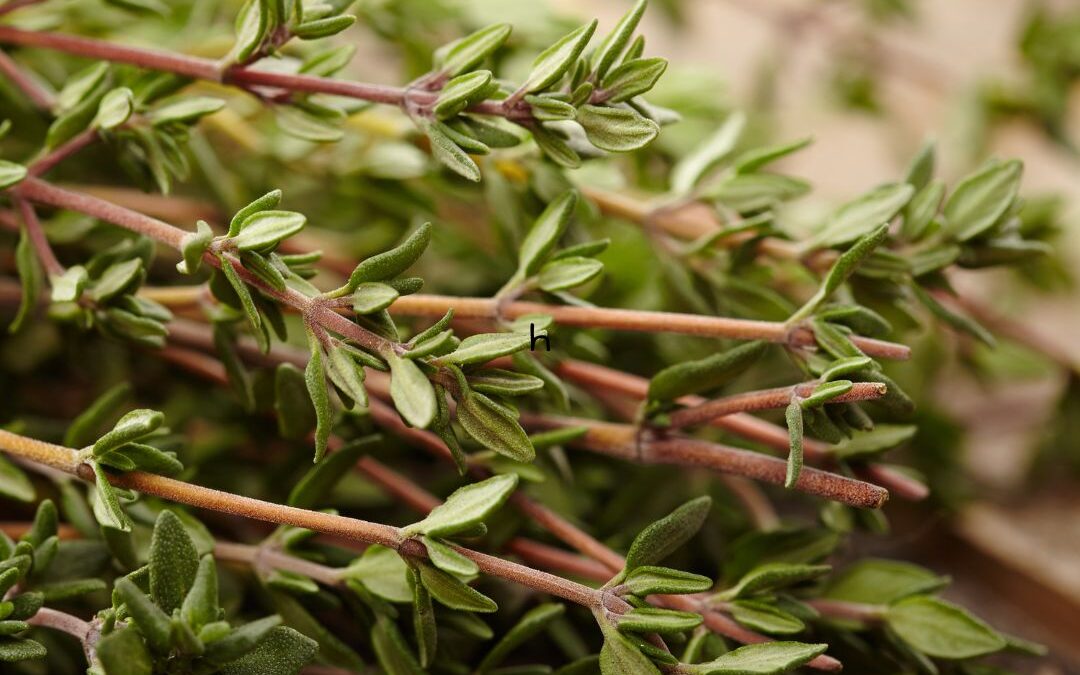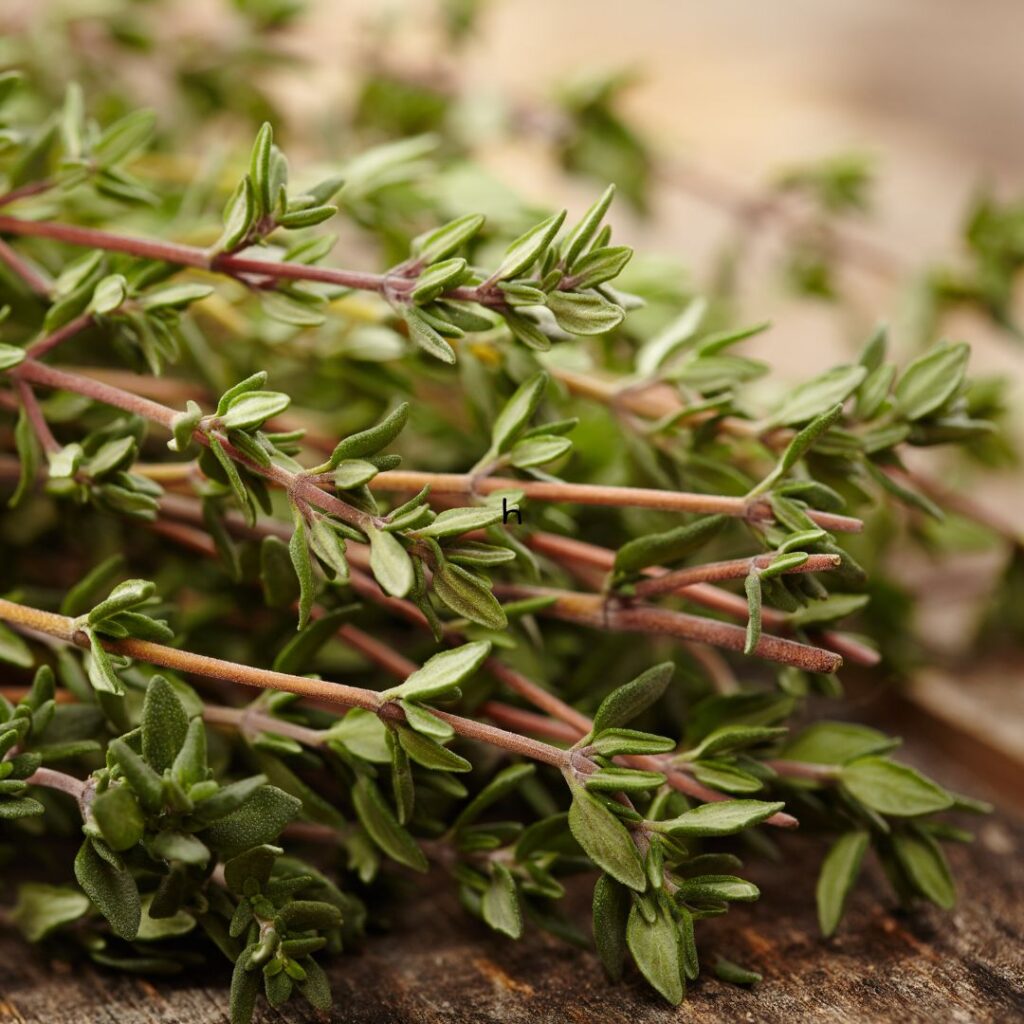
I was gazing out at the garden, cup of tea in hand, when the thyme growing in amongst the roses caught my eye.
She was getting ready to form those buds, the first inkling that for the Southern Hemisphere, spring is not too far away.
History of Thyme
Its Latin name is Thymus vulgaris. Thymus refers to its use by Romans and Greeks as an incense as the Greek word thymos means spirit or smoke.

The Romans and Greeks burned thyme to clear the mind and rid the air of illnesses.
Interestingly, this traditional use has been confirmed by researchers who have recorded its ability to neutralise airborne unhelpful bacteria and fungi.
Thyme is also associated with the Greek word thumos, meaning courage. It is thought that in Mediaeval times, thyme may have symbolised bravery. Vulgaris means it’s a common form of the plant.
How thyme helps your garden to flourish
There’s nothing more heavenly than when the thyme and the Rosa Damascena are both out in flower. The combination of those scents is heavenly. Thyme is one of those must have herbs for the home. It’s loved by gardeners for its antiseptic and deterrent effects and helps dissuade cabbage worm and whiteflies so plant it near cabbages and other brassicas and your strawberries.
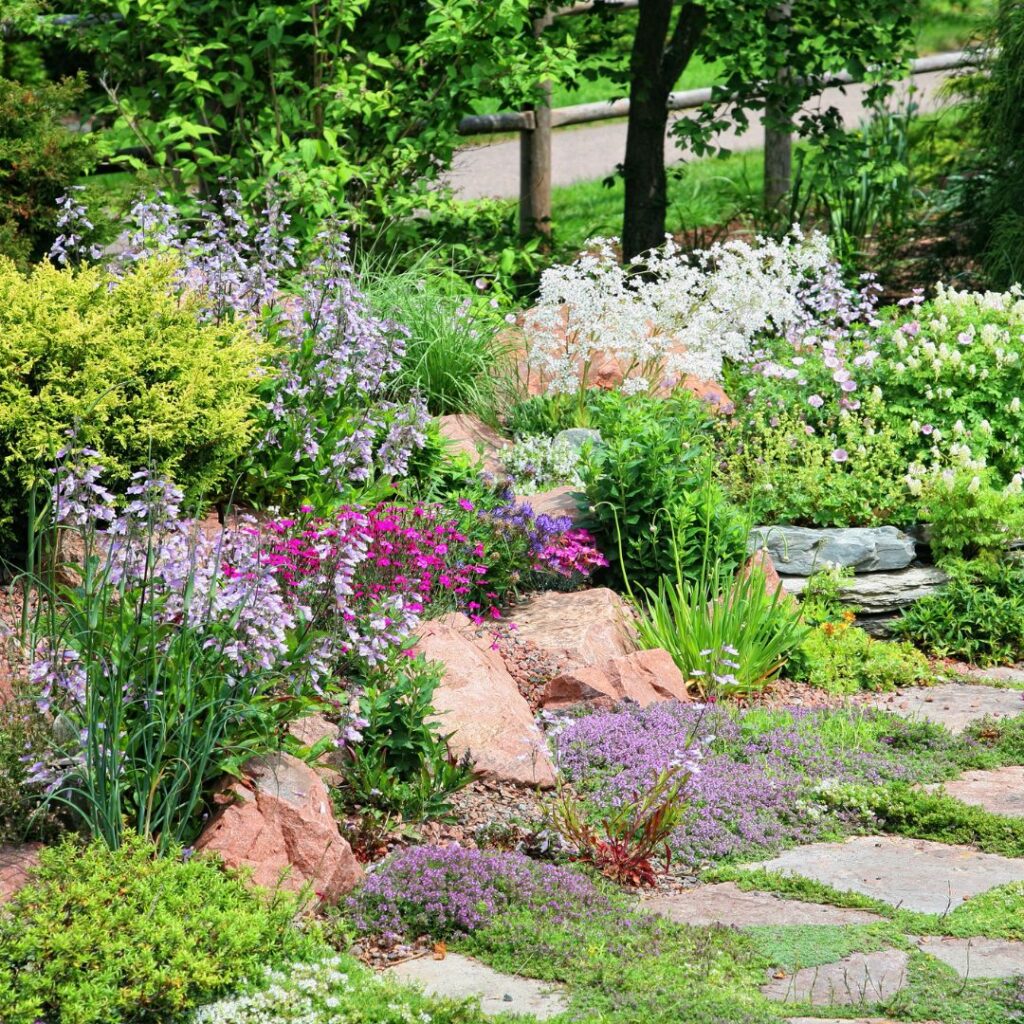
Aphids love thyme so you can plant them near your more prized plants as a sacrificial crop. That’s why they’re near our roses.
Thyme is very hardy and it can survive an aphid infestation. Roses a little less so.
Gardeners suggest planting thyme with your potatoes because it brings up a bigger yield and Thyme also repels shallot loving bugs.
It’s a wonderful culinary herb. It’s lending its pungent, spicy aroma to many a dish.
Medicinal uses for thyme
Medicinally, it’s the herb for chesty things and infections. Those powerful aromatic oils are also what’s known as a carminative. It’s a nice way of saying it helps to move gas along so it’s great for IBS, bloating or if you’ve simply overindulged nothing beats a nice cup of time tea.
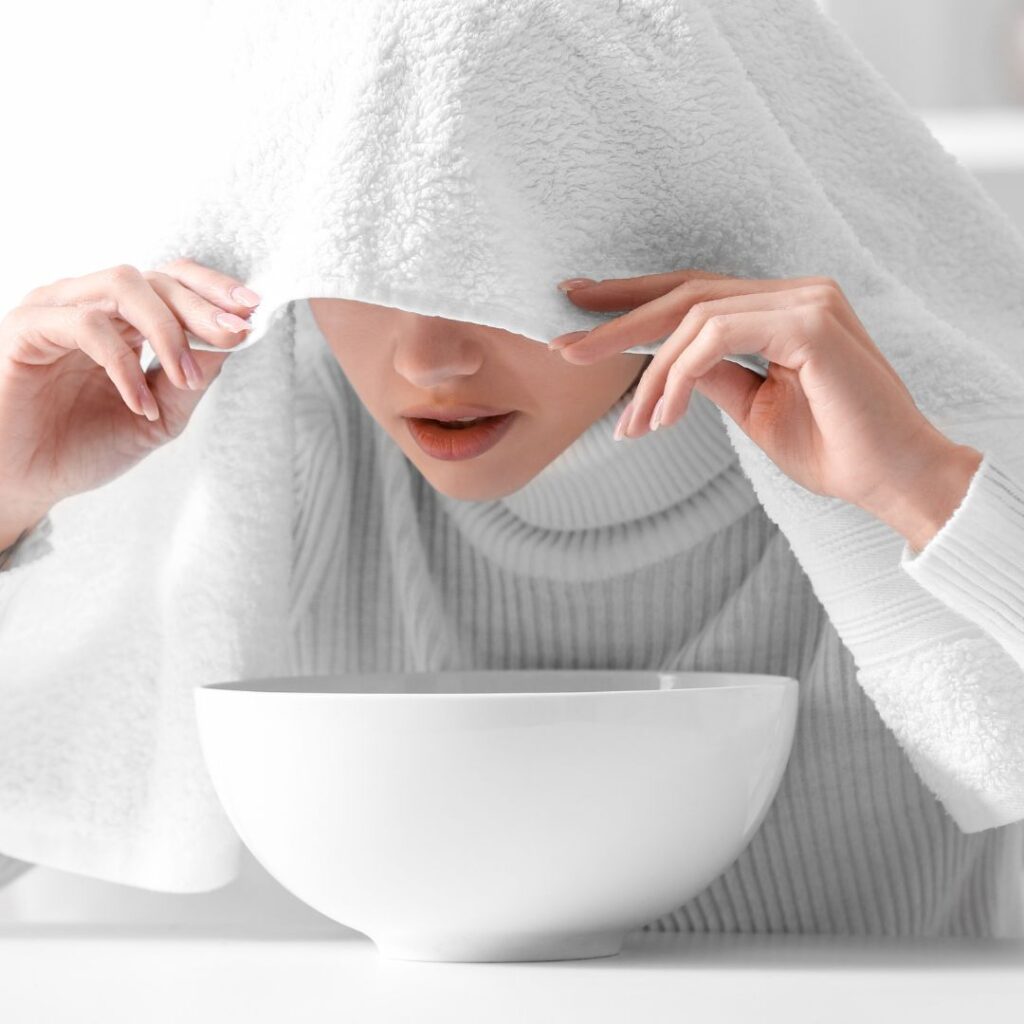
When you’ve got blocked sinuses or a head cold add some thyme leaves to a bowl of steaming hot water.
Place your face over the bowl with a towel over your head and breathe in slowly, deeply and calmly.
The thyme infused steam will loosen cattarh and it will help you to decongest.
As an essential oil, it’s a key ingredient in my herbal chest rub. I usually combine it with some blue gum eucalyptus, some pine and a little bit of lemon. Not just for the chest, try rubbing some of it into your feet. It’s a whole new decongesting experience.
It’s a broad ranging anti-infective so use it wherever you suspect infection may be present. A cold tea can be used as a throat gargle or use a fresh hot brew to wash wounds. It’s also antifungal and it’s used traditionally to dispel worms; in particular hookworms and Ascarids. Use it to rub down surfaces when infection is in the house or diffuse the essential oil via an essential oil diffuser.
Thyme from New Zealand’s Central Otago region

There’s something special about the thyme you’ll find growing in New Zealand’s Central Otago region.
This thyme has adapted to the harsh alpine environment by creating its own unique chemotype. It’s incredibly potent. So potent that you can detect those volatile oils by the tingle on your tongue when you taste it.
Thyme herbal remedy recipes
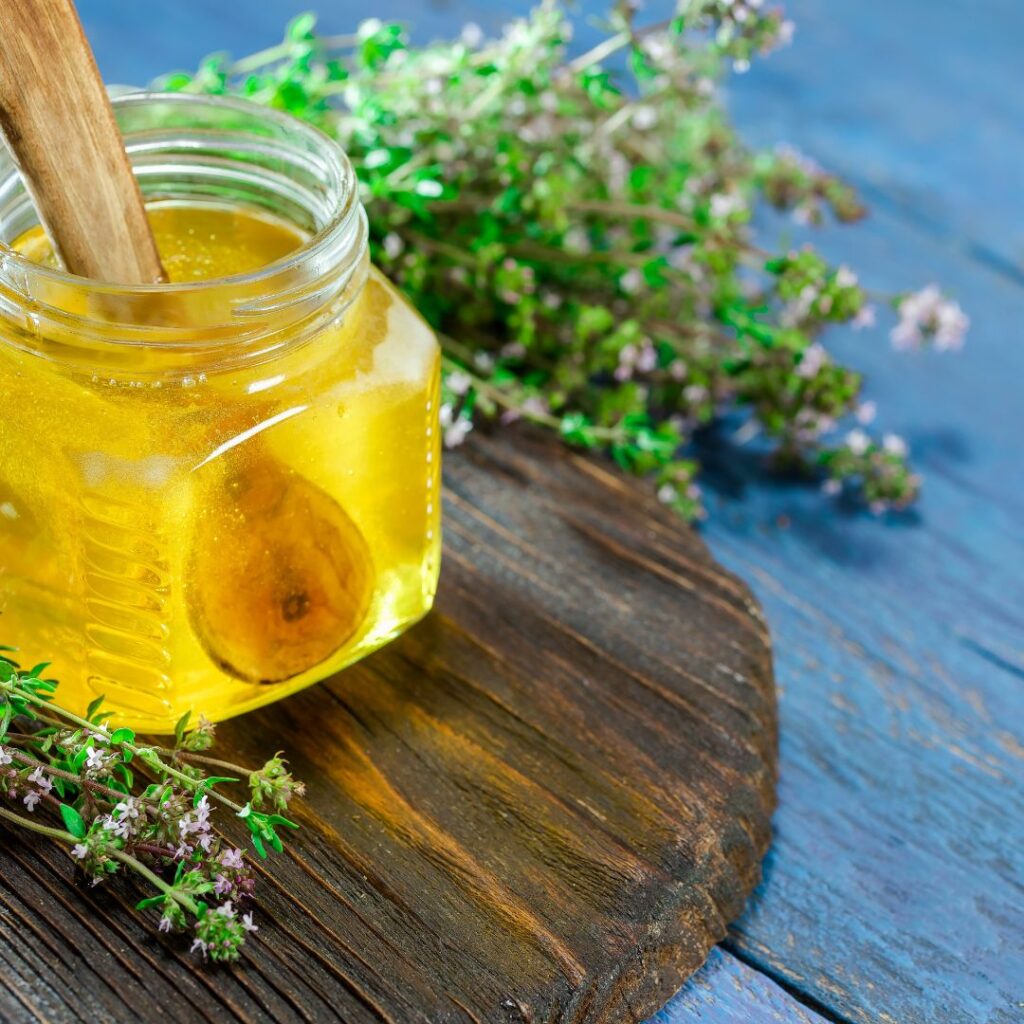
A particular cold and flu treat is some ginger, lemon and thyme honey mixed with hot water.
Thyme honey is where the bees have visited solely thyme is a powerful home remedy to add to your ‘beat that cold’ arsenal.
What I love most about thyme is its versatility and the fact that it’s a medicine of the people. It doesn’t need a fiddly recipe for use. It’s effective as a tea, ingested as a food, burned or vaporised. It’s one for the herbal first aid cabinet. You can get fancy with it and include it in ointment as a chest rub or pollen barrier or tincture it but if you have a need of it right now, grab some thyme from the garden and put it to use.
Just because it’s natural, it doesn’t mean it is good for you
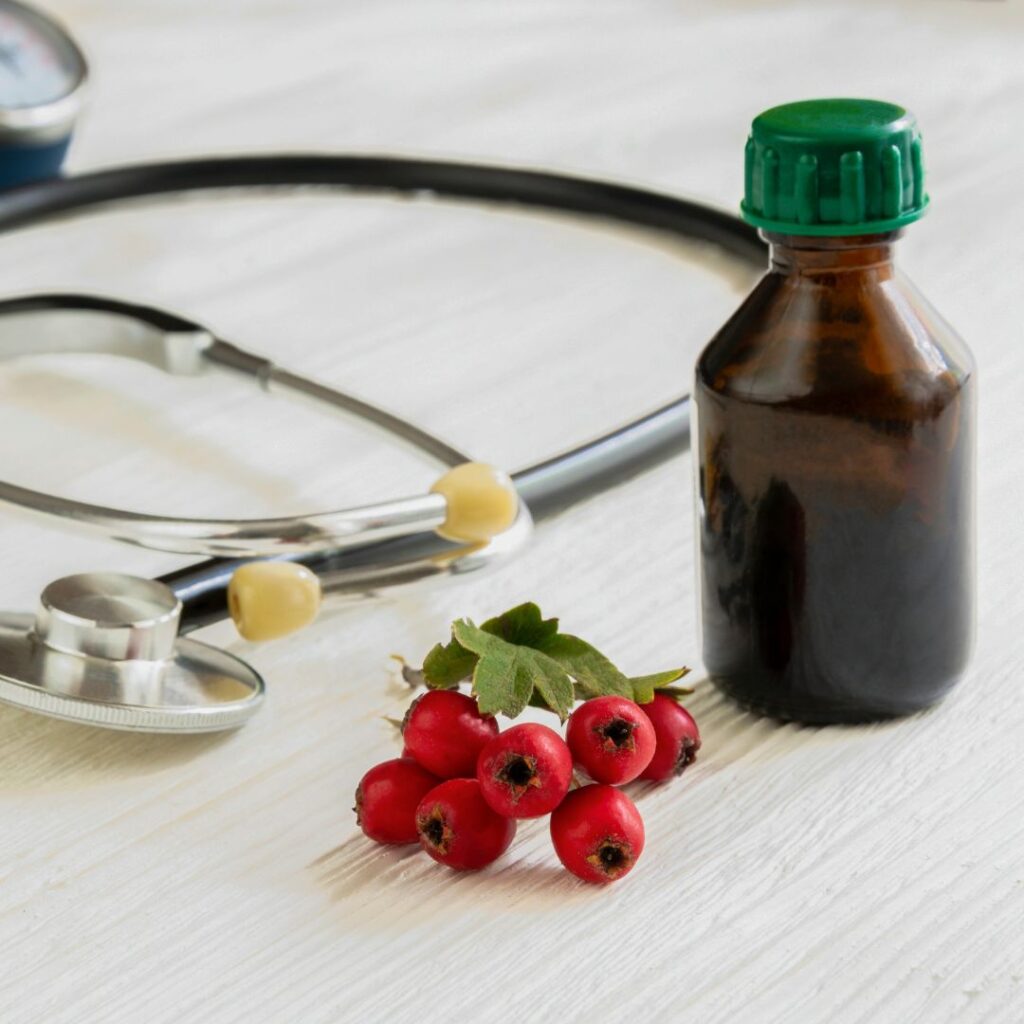
Please remember, plant medicine is potent medicine.
If you have any underlying health conditions, you’re pregnant or trying to get pregnant, you’re lactating or you’re taking any medications, don’t just rely on the information in this article.
Please do get individualised advice by consulting with your medical herbalist. Not only are they trained in which herbs affect a particular health condition or your current life season, they’re also trained in herb-drug interactions and in choosing exactly the right herb for you.

You see, your body knows exactly what it needs to heal itself. Be that herbal, pharmaceutical, food based, emotional, or mind medicine.
My job, as your herbalist, is to connect you with the herbs your body is already searching for.

